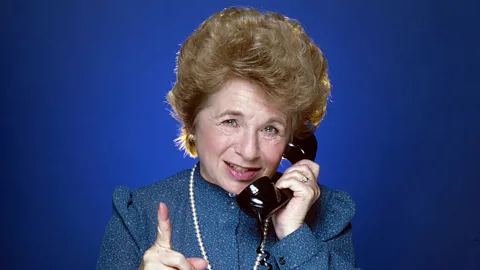Cultural Puritanism to 'sex positivity': How Dr Ruth changed sex in the US forever
 Getty Images
Getty ImagesFrom the 1980s, the TV sex therapist Dr Ruth Westheimer's no-nonsense openness and sex positivity ushered in a new era for the US that made her a cultural icon.
Dr Ruth, the television sex therapist, was more than a blip-in-time celebrity. When she died on 12 July at 96, the obituaries called her a cultural icon for good reason. Even people with only the fuzziest idea, or no idea at all, of who Ruth Westheimer was now live in a social world she helped create. The Netflix drama series Sex Education might not exist without her. Neither perhaps, would Showtime's Couples Therapy – or even all the ads for erectile dysfunction treatments so common on US TV today.
Beginning in 1980, Dr Ruth's popular radio and television shows – giving frank, humorous, detailed sexual advice – promoted the idea that sex is a healthy aspect of life and that conversations about sex should be brought into the open. She landed at just the right cultural moment, and was just the right wholesome, grandmotherly character to make that message work. Her openness marked a turning point in the acceptance of what is now called sex positivity.
From a 15-minute radio show called Sexually Speaking to a long stretch of television series including Good Sex! With Dr Ruth Westheimer, she gave blunt advice when no one else was, on everything from losing virginity to achieving orgasms and indulging in fantasies. "If you want to believe that a whole football team is in bed with you, that's fine," she said back in 1985. To a country with a deep-rooted, lingering cultural sense of Puritanism, she was a breath of fresh air. She had credentials to back up her advice, having worked at Planned Parenthood, earning a doctorate in education and doing post-doctoral work in human sexuality. But viewers didn't know or care too much about that. Her bubbly personality and down-to-earth approach were what made her an unlikely star.
More like this
With typical candour, she was often quoted as saying that her career wouldn't have worked if she had been tall and sexy. Being a reassuring grandmotherly type was her key to mainstream acceptance. When she began her television career she was already middle-aged, a pint-sized women (all of 4ft 7in, 140cm) with a chirpy voice. "I was not a young woman sitting on television with a short skirt and a decolletage," she said. "I was already 50. I have an accent."
As a Jewish child during World War Two she was sent on Kindertransport from Germany to Switzerland, escaping the fate of her parents, who died in the Holocaust. But her persona was unrelentingly cheerful. She often pointed out, "It says in the Talmud that a lesson taught with humour is a lesson retained." That humour made her a frequent guest on late-night talk shows, from Johnny Carson's era through Jimmy Kimmel's, bolstering her as a cultural presence. Her voice and little-old-lady sex therapist image were easily caricatured, but viewers mostly laughed with her, not at her.
Beneath that cheery persona is a substantial cultural legacy, part of a continuum in US history. The 1960s were about sexual liberation, dividing older and younger generations. The 1970s started to bring porn out of the shadows. The name Deep Throat was still a bit of a dirty joke in the Watergate era when Bob Woodward and Carl Bernstein called their anonymous source that, but the reference to the porn movie by that name was also a sign of the film's mainstream visibility. Building on the changes of those earlier decades, in the '80s Dr Ruth made sex seem positively sunny, and sexual problems just something to discuss and find solutions to. That attitude made sense to a generation that grew up sexually liberated and was also an antidote to the cultural conservatism that soared during the Reagan years. Although is it not part of her pop-culture image, she was always a champion of contraception and women's reproductive health, and an advocate for safe sex, notably during the height of the Aids epidemic. One of her dozens of books was 1992's Dr Ruth's Guide to Safer Sex, not as catchy a title as 1995's, Sex for Dummies, so you can see why her serious side was often undervalued.
In 2019, promoting a Hulu documentary about her life, she was still giving common-sense advice with brashness and enthusiasm, this time to millennials who complained of being too busy or stressed to have sex. "Don't be stupid. Make sure that you have time for sex," she told USA Today. "Here is an activity that is so enjoyable and it's free." No one ever said it better or with more enduring impact.
--
If you liked this story, sign up for The Essential List newsletter – a handpicked selection of features, videos and can't-miss news, delivered to your inbox twice a week.
